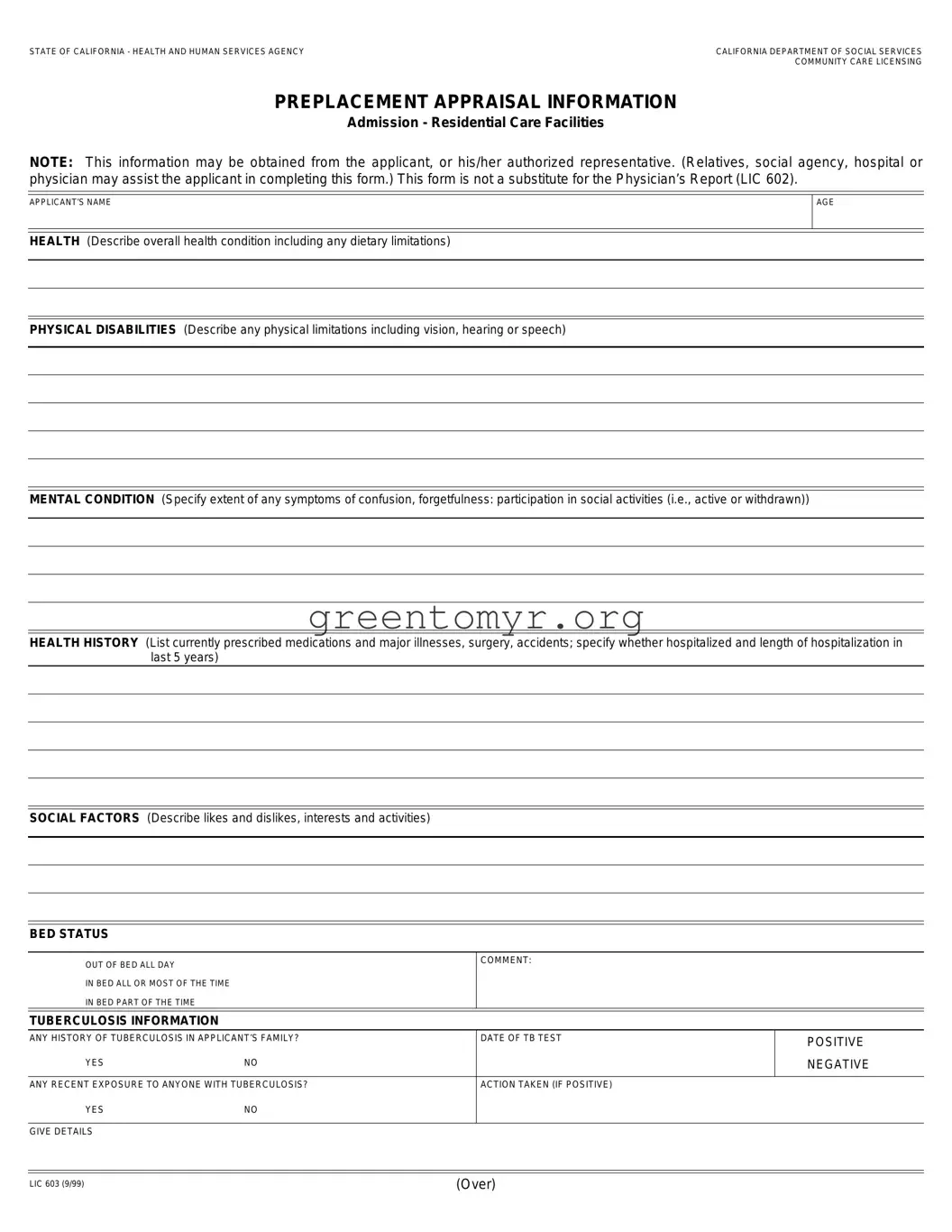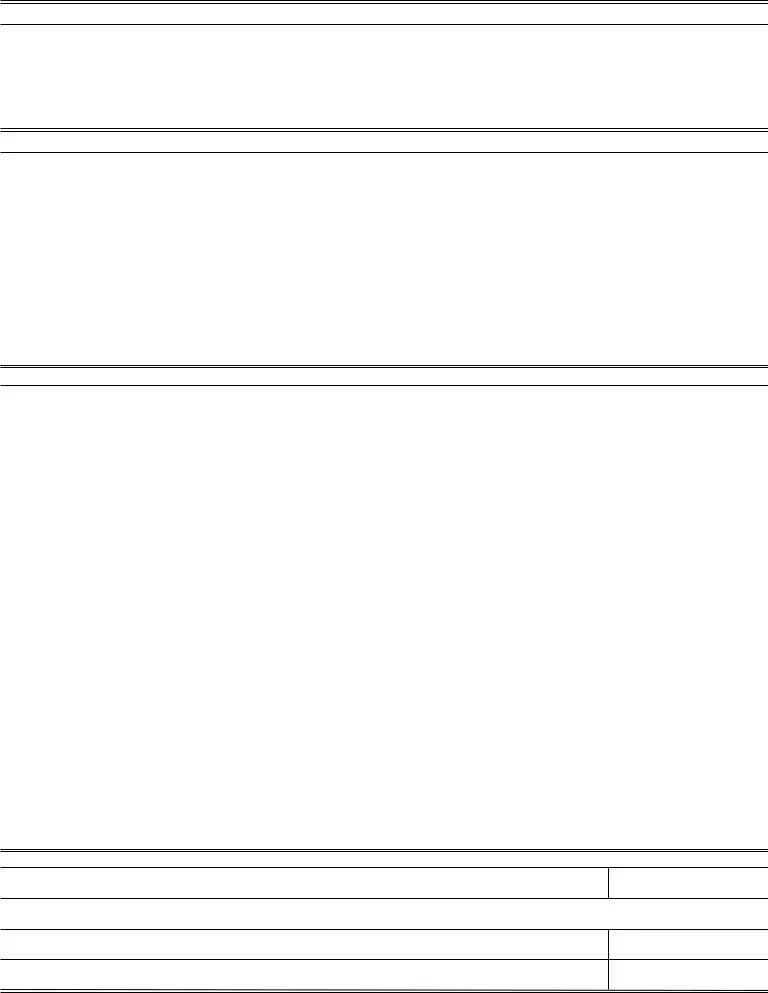Help in transferring in and out of bed and dressing________________________________________________________________________
_______________________________________________________________________________________________________________
Help with bathing, hair care, personal hygiene ___________________________________________________________________________
Does client desire and is client capable of doing own personal laundry and other household tasks (specify) ___________________________
Help with moving about the facility ____________________________________________________________________________________
_______________________________________________________________________________________________________________
Help with eating (need for adaptive devices or assistance from another person) _________________________________________________
_______________________________________________________________________________________________________________
Special diet/observation of food intake _________________________________________________________________________________
_______________________________________________________________________________________________________________
Toileting, including assistance equipment, or assistance of another person_____________________________________________________
Continence, bowel or bladder control. Are assistive devices such as a catheter required? _________________________________________
Help with medication _______________________________________________________________________________________________
_______________________________________________________________________________________________________________
Needs special observation/night supervision (due to confusion, forgetfulness, wandering) _________________________________________
Help in managing own cash resources _________________________________________________________________________________
Help in participating in activity programs ________________________________________________________________________________
_______________________________________________________________________________________________________________
Special medical attention ___________________________________________________________________________________________
_______________________________________________________________________________________________________________
Assistance in incidental health and medical care _________________________________________________________________________
_______________________________________________________________________________________________________________
Other “Services Needed” not identified above ___________________________________________________________________________
_______________________________________________________________________________________________________________


